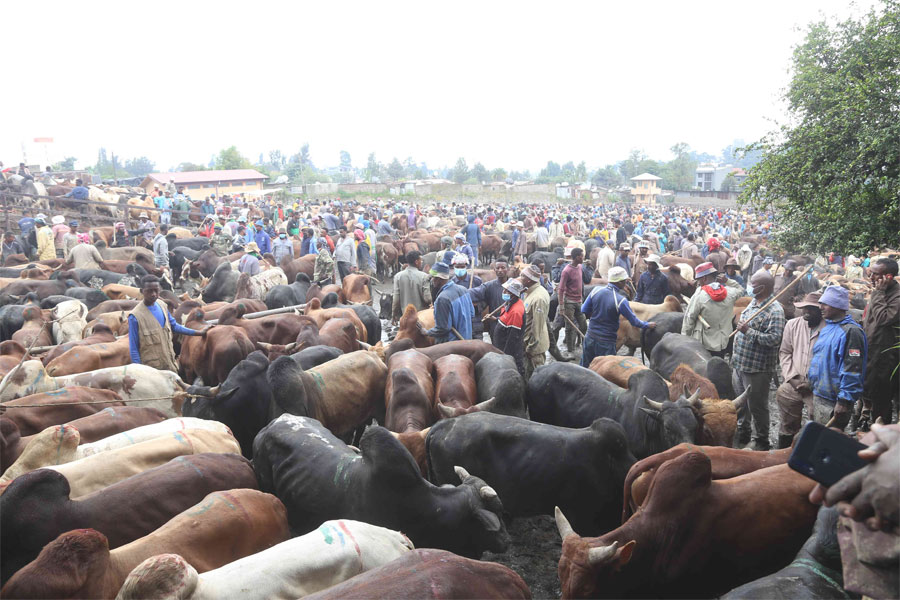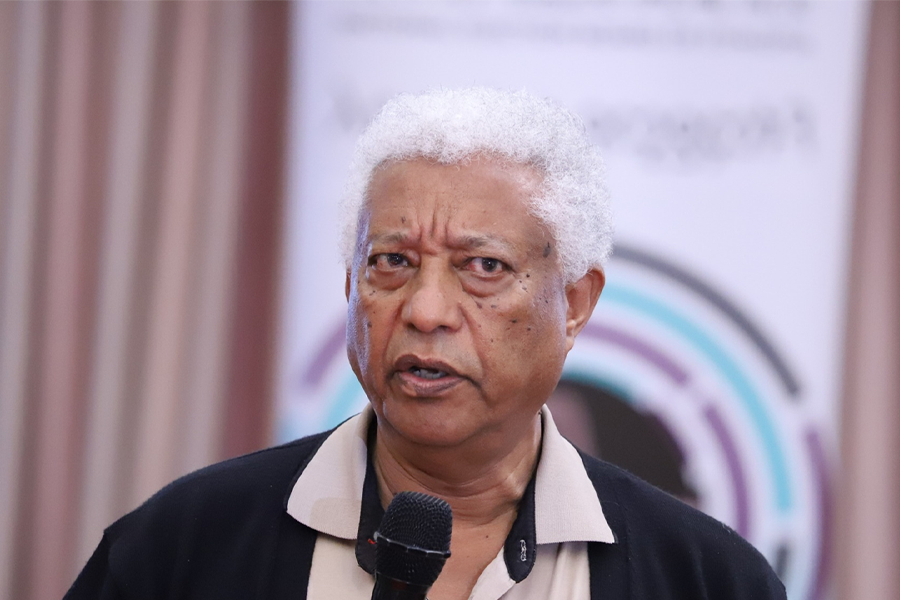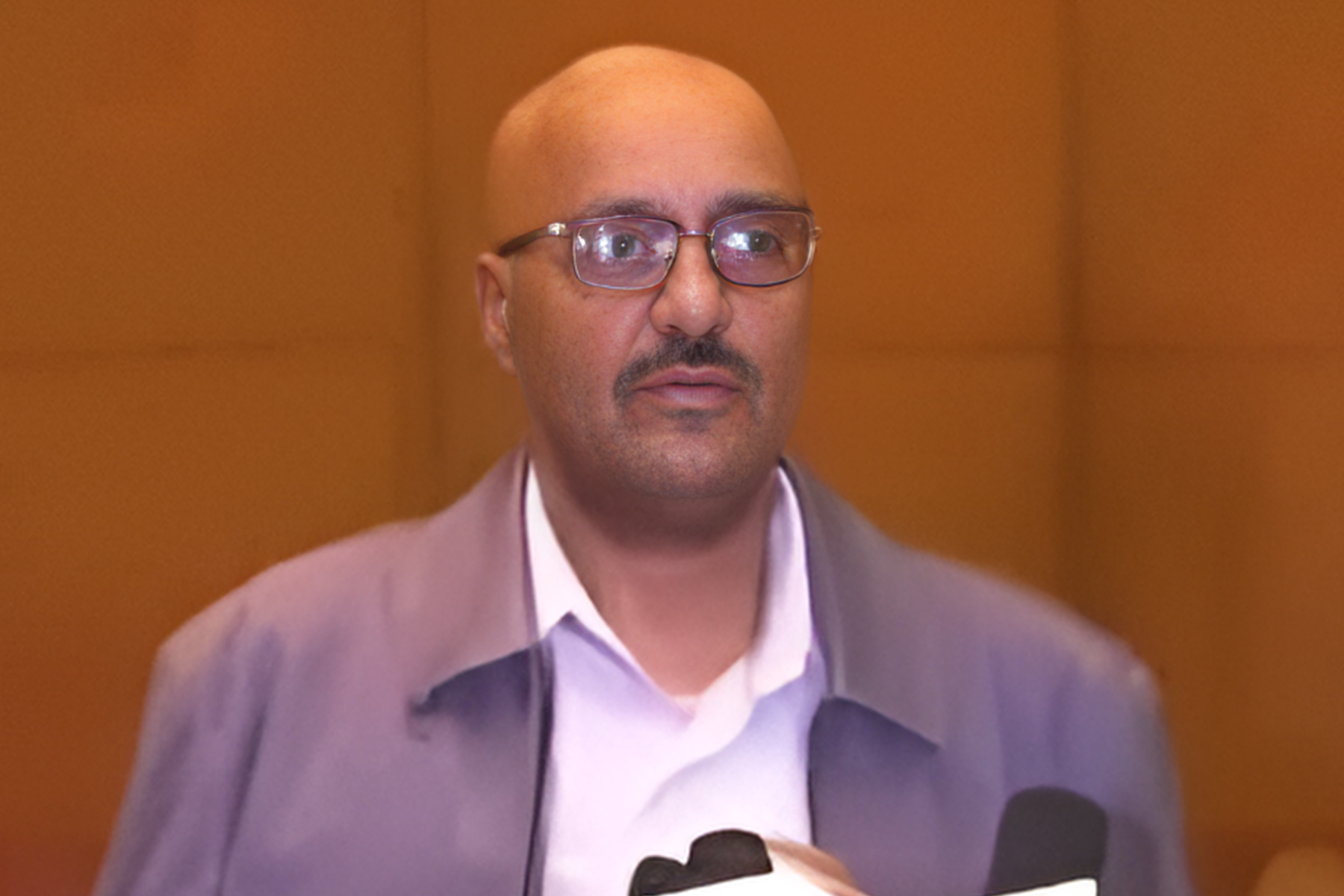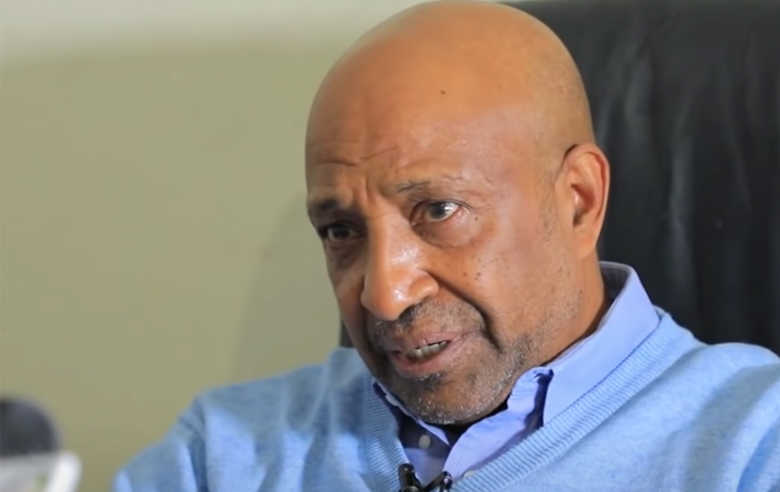
Radar | Aug 12,2023
In Arada, St George Square, just to the south of the old Addis Abeba Fire Station building is a little obscure street, the strangely named Eon Street, that runs to Ras Mekonnen Square in Piassa. Alongside this relic of a road flourishes the typical urban scene of our enigmatic capital that pulses and thumps in an endless rhythm of life that defies its ever-present blight.
There, among the corrugated metal sheds and plastic-covered stands of small market traders, booksellers, street vendors, tailor stalls and road-side cafès, is an old rambling building that still houses the offices of what remains of Qinijit, one of the opposition parties of that infamous election of 2005.
In one of the rundown rooms, two women operate a paralegal business that churns-out dozens of legal documents that are otherwise prepared by lawyers. Their clients are as varied as the documents that they whip out of a small printer and a busy photocopier that continually shakes and rumbles from overuse and age.
Coalition for Unity & Democracy, or Qinijit, is one of the opposition coalition parties that faced the incumbent, EPRDF, it too a coalition creature of its own. On the walls of the building are hung old crumpled posters with pictures of bygone party events. Some placards are etched in ink with stories of the chaos that followed the controversial election - narratives of winning the election, imprisonment, pleas for pardons, exiles and congresses held to resurrect the party after its demise by faith, internal squabbles, incompetence and autocratic rule.
During those heady days, political parties had mushroomed into a mad collection of fraught alliances and groupings, much as they have today.
What they all had in common then was that they were all desperately cobbled up assemblages with dumfounding names and acronyms that beguile ordinary folks - UED, ESDFP, ONC, SEPDC, CAFPDE, CUD, AEUP and EDUP-(M).
Fourteen years on there are nearly 80 different political parties and coalitions, with as many names and acronyms, gearing up to compete in the upcoming 2020 elections. For the most part, they all resemble their predecessors and have names that begin with their geographic origins, with “Ethiopia” sometimes inserted for variation.
These parochial names are typically embellished by the adjective “Democratic,” that is routinely followed by nouns such as “Movement”, “Front”, “Party”, “Congress” and “Organisation.” Their existence and legitimacy, it seems, is purely confined and branded by their alliance to a particular group and region and nothing more.
Most have no membership lists that they can bring to the public forum; nor any legitimate constituency that has bestowed upon them the power of representation; or much else in the way of party mechanism or program that they can point to.
Today, Qinijithas splintered into many factions that are still led by some opposition leaders who sprang to prominence during the infamous 2005 elections.
For the most part, party lineups for the upcoming elections have not posted any political programs or established viable web presences. Among the very few that have managed to post anything at all, the material is essentially devoid of any real substance and content.
The rhetoric of values, struggles and principles without economic agenda; without contributions to policy and legislation; absent of concrete proposals for the way forward; and without a road map on how to win the next election is as useless as onion leaves.
The worrying question for all of us today is how these desperate and disorganised groups will manage to function as viable political entities and avoid the squabbles and incompetence that consumed them in the past. The plain and direct answer is that they must start preparations now and start putting their houses in order.
What is required is that they create competent party organisations; provide policy proposals to effectively engage their competition; recruit and consult with the electorate to gain the trust of the citizens; bring forward an impeachable leadership team that is acceptable and worthy of the public interest; and establish a transparent, accountable and effective funding mechanism as some experts suggest.
The current fashion of cavorting in the limelight, while neglecting the core duties of organising and building a constituent base is not sustainable. There is no need for excessive intellectual expositions in speeches and presentations that leave the voting public bewildered and disinterested.
A recent discourse during a televised discussion among political parties laid bare the monumental chasm that lies between the political elite and the electorate.
During this gathering of opposition party members, an opposition party leader delivered an intricate lecture more suited to post-graduate doctoral students at Addis Abeba University than a nation mired in poverty, political uncertainty and economic malaise. It is doubtful if the speech enlightened even the ordinary people in attendance about his party’s program, agenda or its road plan for the upcoming election.
Further afield from the august hall of the meeting; far away from that erudite gathering of supplicants and flatterers; out in the far-flung regions of the nation; in the remote corners of Wello, Gonder, Wellega or Illubabor - his message could barely register.
The need in Bale, Harar and Gomugofa is for food, healthcare, education, employment and prosperity, not political demagoguery. There is no stampede in the provinces to hear a convoluted thesis on political economy and macroeconomic theories; nor for any sermons that bore the pants off even the most jaded politician who may be in the know.
PUBLISHED ON
Feb 23,2019 [ VOL
19 , NO
982]


Radar | Aug 12,2023

Fortune News | May 27,2023

Commentaries | Jan 01,2022

Fineline | Nov 02,2019

Fortune News | Oct 27, 2024

Verbatim | Apr 06,2024

Life Matters | Feb 18,2023

Radar | Mar 14,2020

Fortune News | Jul 10,2020

Fortune News | Jun 27,2020

Dec 22 , 2024 . By TIZITA SHEWAFERAW
Charged with transforming colossal state-owned enterprises into modern and competitiv...

Aug 18 , 2024 . By AKSAH ITALO
Although predictable Yonas Zerihun's job in the ride-hailing service is not immune to...

Jul 28 , 2024 . By TIZITA SHEWAFERAW
Unhabitual, perhaps too many, Samuel Gebreyohannes, 38, used to occasionally enjoy a couple of beers at breakfast. However, he recently swit...

Jul 13 , 2024 . By AKSAH ITALO
Investors who rely on tractors, trucks, and field vehicles for commuting, transporting commodities, and f...

Oct 25 , 2025
The regulatory machinery is on overdrive. In only two years, no fewer than 35 new pro...

Oct 18 , 2025
The political establishment, notably the ruling party and its top brass, has become p...

Oct 11 , 2025
Ladislas Farago, a roving Associated Press (AP) correspondent, arrived in Ethiopia in...

Oct 4 , 2025
Eyob Tekalegn (PhD) had been in the Governor's chair for only weeks when, on Septembe...